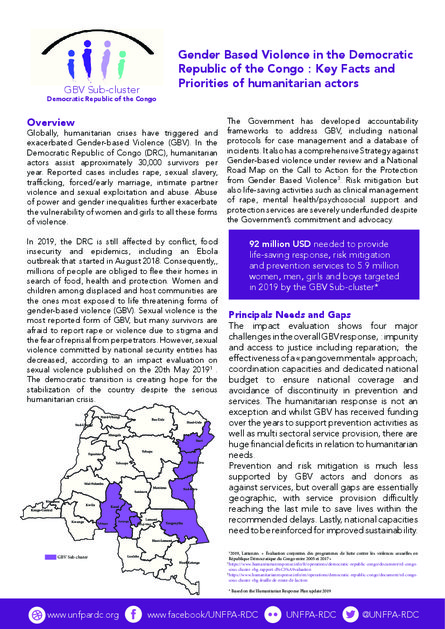
Globally, humanitarian crises have triggered and exacerbated gender-based violence (GBV). In the Democratic Republic of Congo (DRC), humanitarian actors assist approximately 30,000 survivors per year. Reported cases includes rape, sexual slavery, trafficking, forced/early marriage, intimate partner violence and sexual exploitation and abuse. Abuse of power and gender inequalities further exacerbate the vulnerability of women and girls to all these forms of violence.
In 2019, the DRC is still affected by conflict, food insecurity and epidemics, including an Ebola outbreak that started in August 2018. Consequently,, millions of people are obliged to flee their homes in search of food, health and protection. Women and children among displaced and host communities are the ones most exposed to life threatening forms of gender-based violence (GBV). Sexual violence is the most reported form of GBV, but many survivors are afraid to report rape or violence due to stigma and the fear of reprisal from perpetrators. However, sexual violence committed by national security entities has decreased, according to an impact evaluation on sexual violence published on the 20th May 2019. The democratic transition is creating hope for the stabilisation of the country despite the serious humanitarian crisis.
The state has developed accountability frameworks to address GBV, including national protocols for case management and a database of incidents. It also has a comprehensive Strategy against Gender-based violence under review and a National Road Map on the Call to Action for the Protection from Gender Based Violence . Risk mitigation but also life-saving activities such as clinical management of rape, mental health/psychosocial support and protection services are severely underfunded despite the state's commitment and advocacy.
